Andrew Porterfield

Did you hear the story about the GMO that nearly destroyed the world?
An old myth has resurfaced that a GMO almost destroyed all life on Earth — but what's the real story? ...

Viewpoint: Whitewash — How four obstructionist journals and their academic enablers are corrupting reporting on the science of chemicals and crop biotechnology
In 2022 and 2023, two papers analyzing the intersection of genetic engineering and disinformation were published. Neither were in very ...

Anti-GMO activists take page out of anti-chemical and anti-BPA lobby, targeting the ‘black box’ of endocrine disruption
Anti-GMO activists are taking a page out of the anti-chemical lobby in claiming that genetic modification can disrupt normal endocrine ...
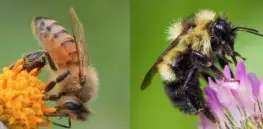
Protecting honeybees and wild bees from neonicotinoid pesticides? As environmentalists and politicians lobby for bans, science takes a backseat
There has been a recent surge in the number and intensity of campaigns by environmental groups lobbying to ban many ...

Ramazzini — The backstory of the ‘independent’ Italian organization that partners with IARC, the multi-billion dollar ‘toxic predatort’ industry, and anti-chemical environmental groups
In recent years, the Bologna-based Ramazzini Institute has found the following substance or situations "linked to" or "associated with" with ...

Agriculture and climate change: Taking the best of all farming systems could tip the carbon scale in the right direction
Agriculture contributes a significant portion of the world's climate-changing greenhouse gases. In turn, changes in climate will reduce agricultural yields ...

Viewpoint: Could crop biotechnology mitigate dislocations from climate change? Anti-GMO activists say ‘no’. Here’s why they are wrong
We’ve heard a lot about climate change, and its impact on crops, especially in tropical and sub-tropical regions of the ...

Viewpoint: Anti-GMO activists, from Organic Consumers Association to Joe Mercola to Vandana Shiva, formed an alliance. Why this is good news for biotech and science supporters
Alliances and networks is the new game plan among anti-GM activists. Recently, Organic Consumers Association [read GLP profile head Ronnie ...
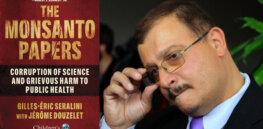
Viewpoint: Gilles-Éric Séralini, Vandana Shiva, Robert F. Kennedy, Jr. — Anti-GMO characters join together in book diatribe misrepresenting the science about glyphosate and Monsanto
The recent court victories against the former Monsanto involving glyphosate constitute a major cause célèbre for anti-GMO activists. Now, another ...

Organic pesticide copper sulfate—unlike glyphosate—is a carcinogen, kills beneficial insects, decimates soil, pollutes water. It also works. Here are political and science reasons why regulators give it a free pass
Europe is currently in a frenzy trying to drum up enough support to dramatically rollback approvals of targeted synthetic pesticides, ...

Viewpoint: Can agroecology cut European food imports and grow more on less land all while cutting greenhouse gas emissions? It would take a lot
Europe currently is heavily dependent on imports for food products as well as animal feed, particularly soy and corn. But ...

Climate change vs agriculture: Can one farming method—conventional, organic or agroecology—help slow global warming?
Climate change and agriculture appear joined at the hip. Agriculture—through methane, carbon dioxide, and land use—has had an impact on ...

Viewpoint: Challenging organic myths — Big Ag doesn’t ‘control the food supply’ with patented GMO seeds, patented seeds are planted on organic farms, too
GMO critics demonize the concept of seed patents, equating it with 'Big Ag' and what they see as a takeover ...

Viewpoint: Environmental groups attack latest crop gene-editing innovations misusing scientifically outdated 20-year-old anti-GMO arguments
“Gene stacking”—the process of modifying several genes or traits instead of just one—has been around many years. “Golden Rice,” engineered ...

‘Regenerative’ agriculture: Organic farming buzz word, or the path to sustainable food production?
The goal should be sustainability, not trying to advance an ideology ...
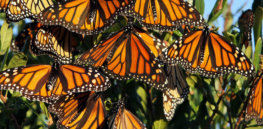
Roundup glyphosate weedkiller responsible for the decline in Monarch butterflies? Media and advocacy groups badly misreport study
News reporting at its best should be nuanced. There are rarely 'black hats' and 'white hats' when it comes to ...

Pesticide hypocrisy? EU edges toward banning glyphosate after finding it safe but clears organic copper sulfate after finding it a ‘public health and environment concern’
Of all the elements the EU considers in ag regulations, science gets the shortest shrift ...

Viewpoint: Glyphosate-tainted hummus? Environmental Working Group’s latest pesticide scare short on facts
In the wake of a highly publicized legal settlement between Bayer, owner of former glyphosate-maker Monsanto, and lawyers representing plaintiffs ...

Viewpoint: Organic fungicide copper sulfate and other copper products widely used by wine growers endangers humans, animals and insects
Organic farming is not chemical free. Copper sulfate is a popular one. How does it work and how does it ...

Viewpoint: Blame the coronavirus on ‘industrial agriculture’? We need more, not less of it to stave off the next viral pandemic
An internet meme is circulating worldwide in the heat of the COVID-19 pandemic: “Every disaster starts with a scientist being ...

Assessing coronavirus media coverage: Too late, too alarmist, and too much censorship
Few Western media outlets are getting this one right ...
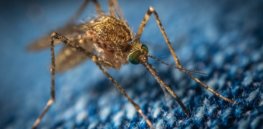
Gene drives could revolutionize how we deal with pests—if the technology avoids the controversial fate of GMOs
In addition to research and laboratory ethics, gene drive proponents need to focus on public perception ...

Will CRISPR’s promise force the organic industry to reconsider its opposition to gene-edited crops?
In addition to better nutrition, CRISPR can produce foods with fewer 'inputs' than conventional and organic foods ...

Do vaccines contain glyphosate? Anti-GMO claim requires ‘very unlikely scenario’
Many GMO critics believe that vaccines are contaminated with glyphosate. A look at how vaccines are made and how glyphosate ...
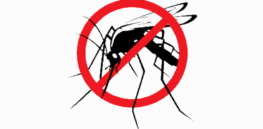
Oxitec’s GMO mosquitoes spread their genes in the wild? Separating science from hype after controversial new study
Did the mosquito experiment go wrong? ...
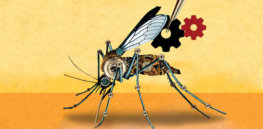
Viewpoint: Public supports CRISPR, gene drives to battle infectious disease, plant pests—despite activist opposition
Consumers are less wary of biotechnology when they know how it's being deployed ...

Education, politics, religion may have no impact on our acceptance of GMOs
A study examining the public's 2006 views on GMOs offers a glimpse into the evolution of the ongoing debate over ...

